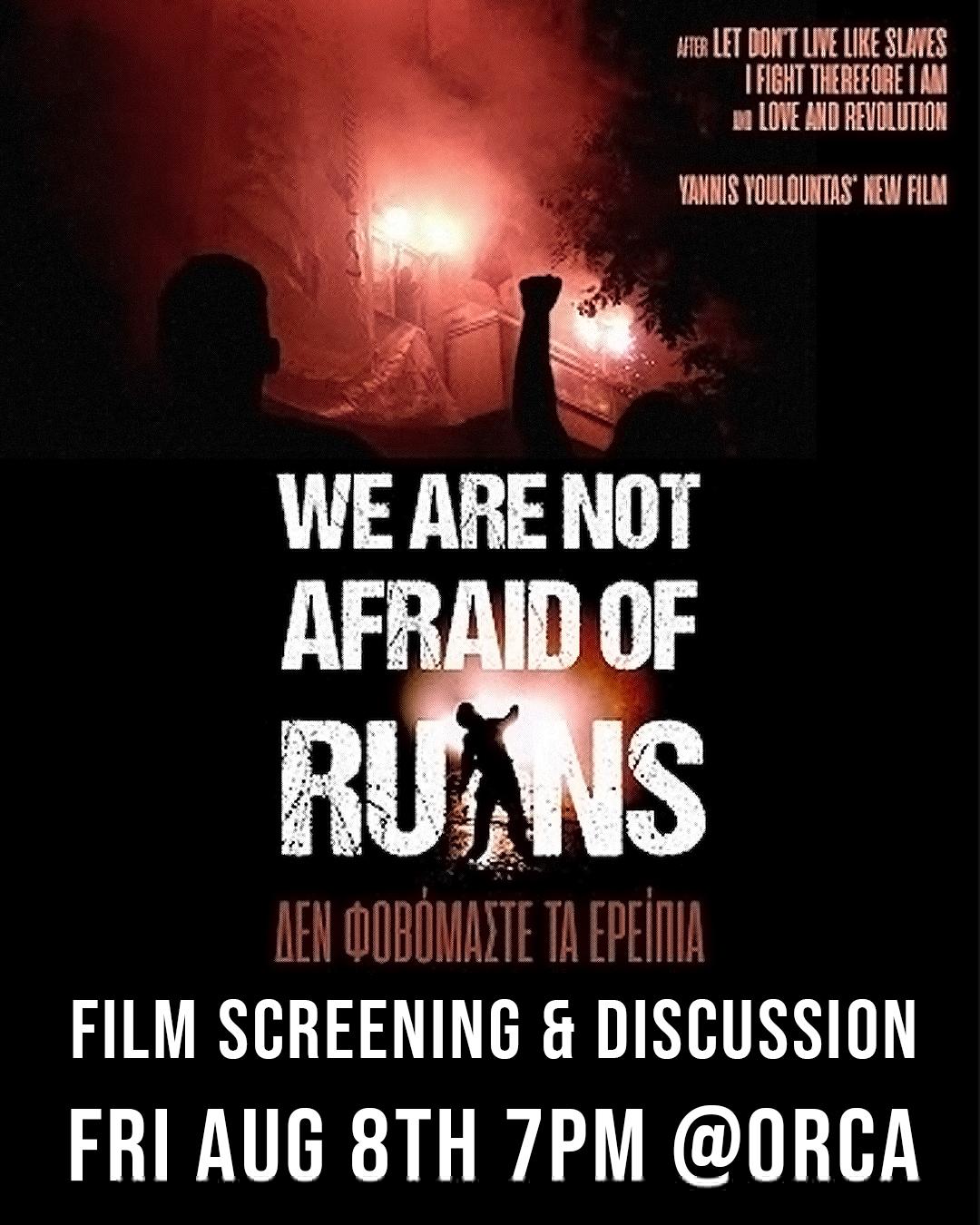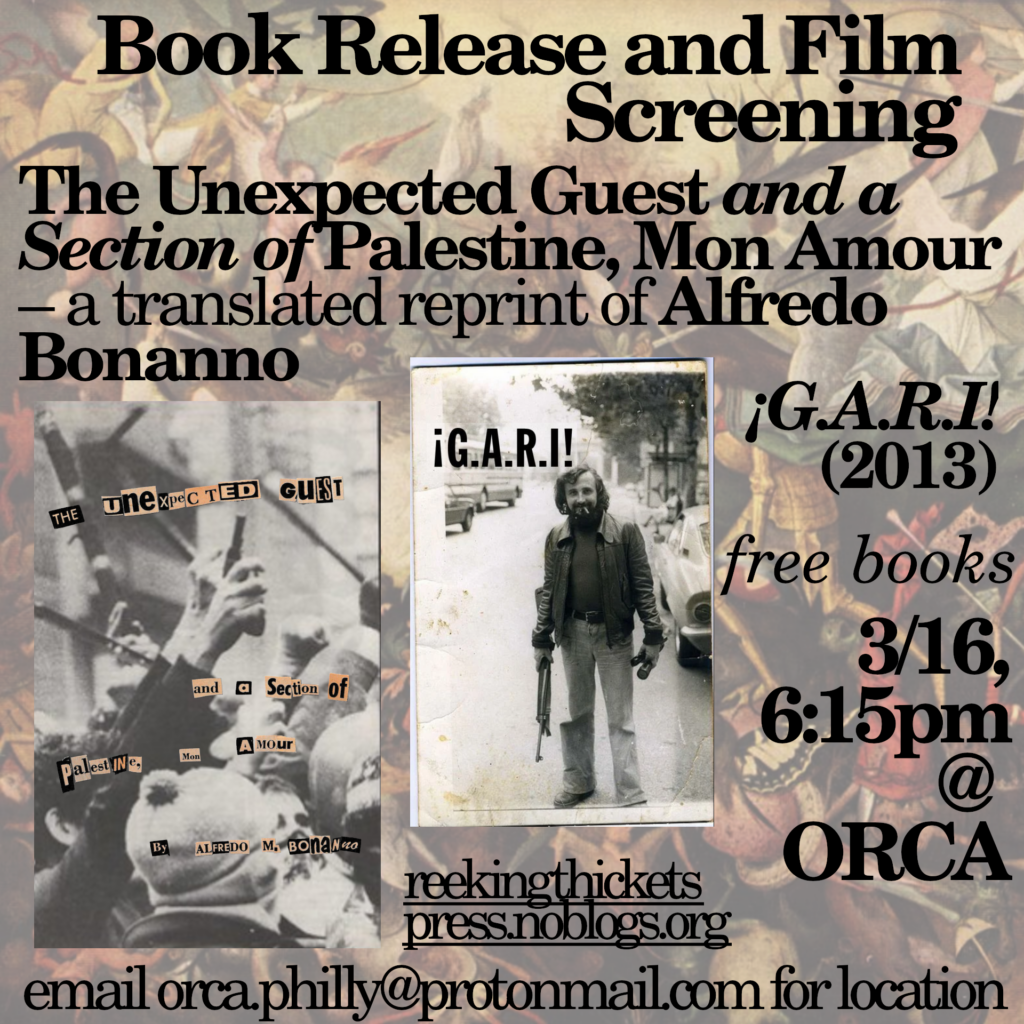Submission
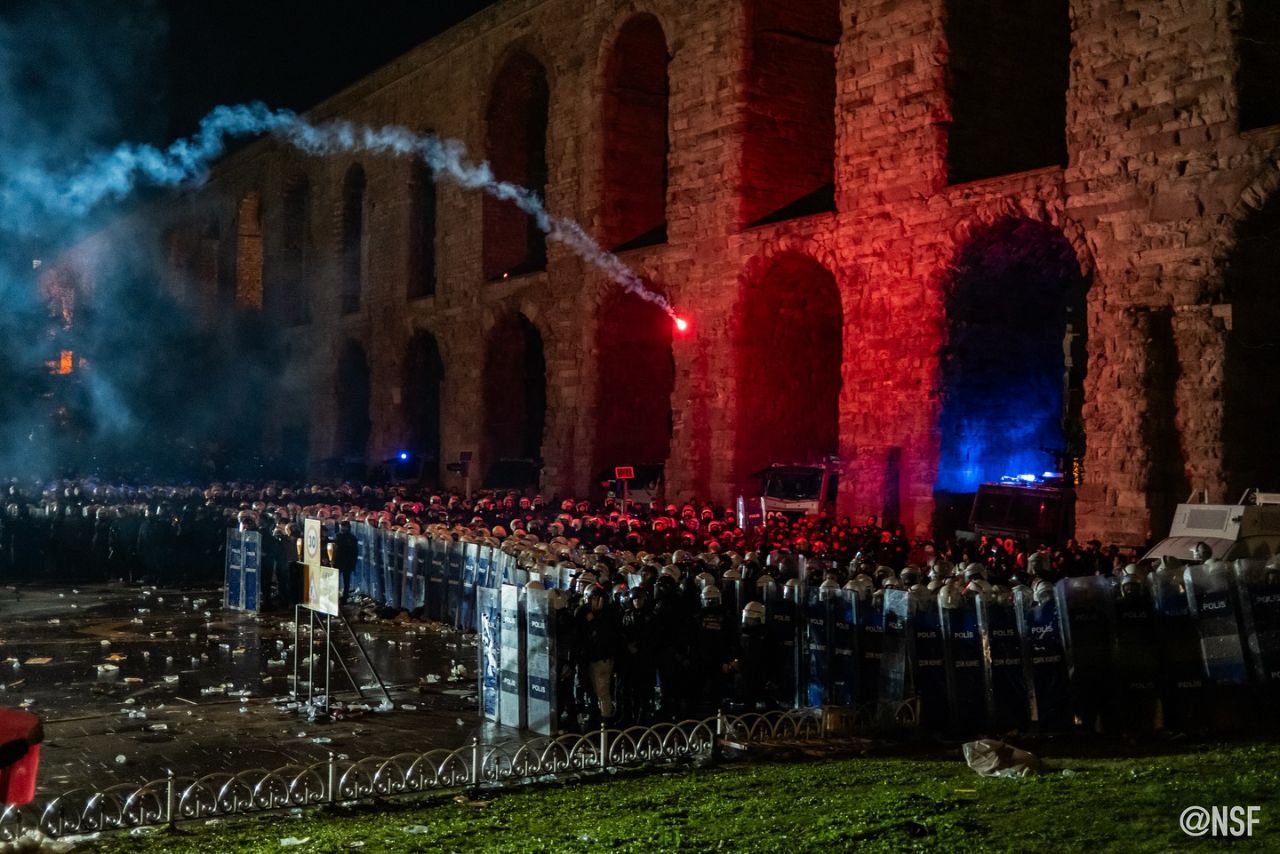
What’s Happening in Turkey — An Anti-Authoritarian Perspective
Why the current uprising in Turkey deserves our support.
Background
The Republic of Turkey, which was founded on the genocide of the Armenians in the region with a nationalist and murderous leaven, has not changed much in the past century. For non-Muslims, Kurds, Alevis and women who did not hold the majority and power in their hands, the state and its successfully constructed society were always a source of oppression. But starting in 2002, as a consequence of Erdoğan’s dictatorship, oppression, poverty, violence and exploitation started to be felt also by the majority of the society. In 2013, after increasing bans and oppressions, millions of people stood up for their freedoms in the Gezi Park riot that took place in cities all over the country. The months-long resistance ended with unprecedented national-scale police attacks in which eight young people aged 15-22 were killed and thousands detained. Since 2014, the Turkish state has become a police state, and after the 2016 fictitious coup attempt, it has been ruled with absolute authoritarianism under the state of emergency. Since 2021, as a result of the economic crisis that has escalated with great momentum, 60% of the population now lives below the hunger line.
Millions of people, forced into more misery every year, believed that the government and this situation would change in every election, but Erdoğan, who controls the media and the justice system, has never allowed this to happen through fear and manipulation. In the meantime, in order to prevent oppressed groups from coming together, he created a deep hatred within society, labelling each day a new community as terrorist-enemy-foreign agent: Kurds, Alevis, university students, syndicators, lawyers, journalists, academics. While these people were imprisoned on terrorism charges through state courts, those who were still out of prison were fooled by the propaganda that those imprisoned were terrorists. ‘Terror’ became a magic word for Erdoğan to maintain his power, while people who challenged authority ended up in prison, exile or death. In this way, he created zombified individuals and society that is losing its power day by day and collapsing politically, economically and morally. It is exactly in this context that the current uprising is being driven by the youth, who have never seen a mass uprising in their lives, but who have taken to the streets saying ‘nothing can be worse than living this way’. Millions of young people who have been brought up with the teaching that the previous rebels were terrorists and that the state and the police were friends, at least in theoretical terms, are now facing a different reality. Let us take a closer look at these protests.
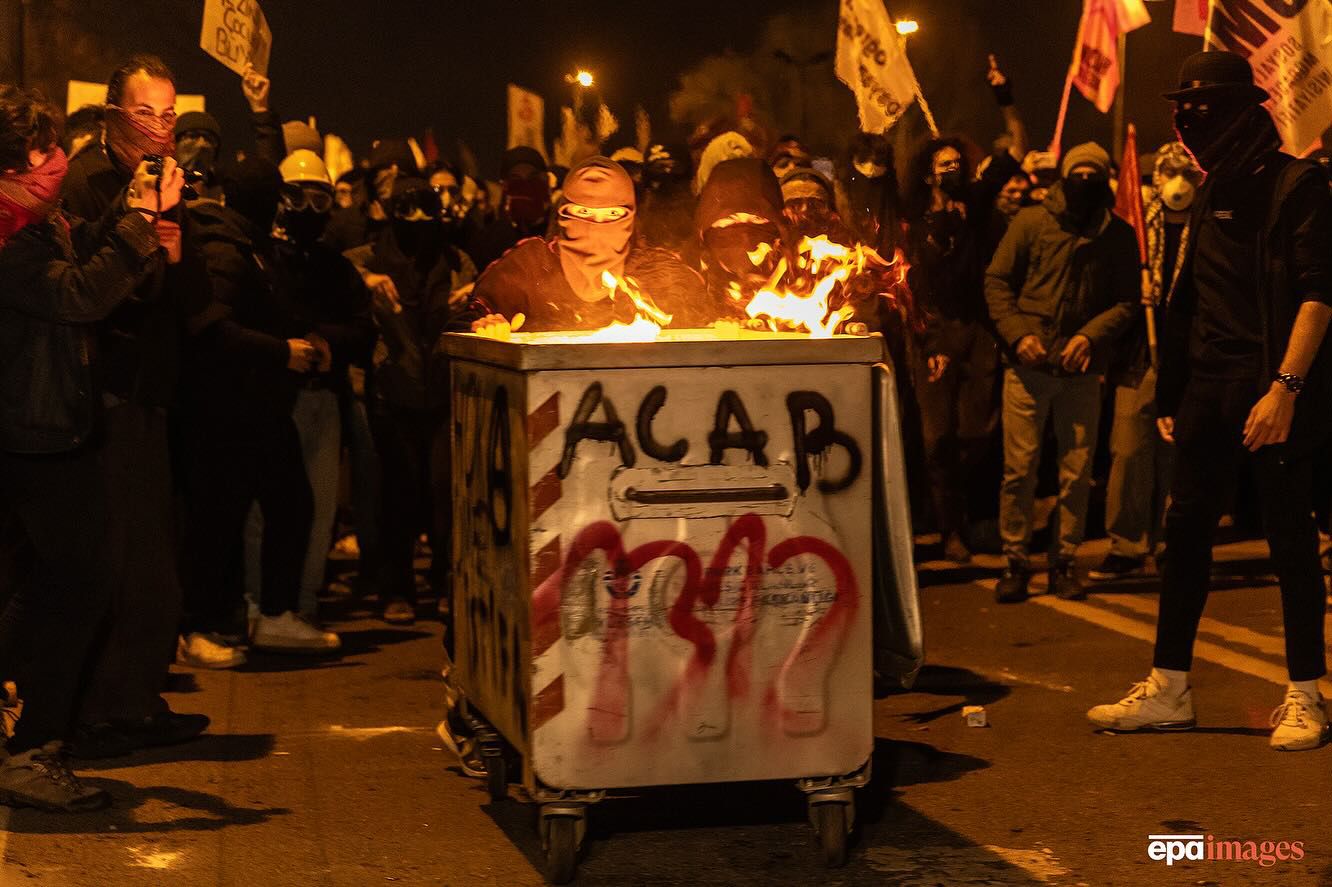
Towards the 19 March ‘coup’
On the morning of 19 March 2025, hundreds of police arrested Ekrem İmamoğlu from his home – the mayor of Istanbul, who is believed to be a presidential candidate in the next election and to defeat Erdoğan- on terrorism and corruption charges. While the incident sparked widespread outrage in Turkey and around the world, Imamoğlu was not the first metropolitan mayor in Turkey to be dismissed and detained by the Turkish courts. Since 2016, many elected mayors from Kurdish cities have been dismissed, arrested and replaced by a government official in similar operations. The fact that these Kurdish mayors have been accused of these magical terrorism offences has convinced the majority of Turkish public to legitimize this and not to oppose it. The silence against this injustice in Kurdish cities empowered Erdoğan to do the same to other mayors run by the CHP (second largest political party, turkish-nationalist centre-left) and prepared the ground for this ‘coup’ on 19 March. The detention of even this highly popular, politically powerful, rich, Turkish, Sunni, privileged man on magical terrorism charges for opposing Erdogan has caused great shock and outrage. Now the honour of being a terrorist could be awarded not only to marginalised people, but to anyone who did not take Erdoğan’s side.
While the public dissent was being destroyed a little more every year, the people who had kept silent in deference to the state, the media and the courts had now found themselves in the target list. Thus, thousands of young people who had even forgotten how to dream under poverty, restrictions and oppression, and who had not yet been labelled as terrorists, suddenly woke up from their sleep or finally exploded in anger and took to the streets in many cities across Turkey on 19 March to start protests. Although it is difficult to say that the protesters are homogenous, it is possible to say that the majority of them are gen-z who have no previous protest experience for the reasons described above, who have not been able to get out of the fear bubble created by the government, who have been exposed to the very intense social engineering of the Turkish state through institutions such as school, media, family, etc., but who are now unable to breathe out of despair and want change. Although the detention of Ekrem İmamoğlu was a spark for these young people to take to the streets, they started to express their anger and demands on many issues by saying ‘the issue is not only about imamoğlu, have you not understood yet?’.
“Nothing is more horrible than living this way”
Encountering the state and overcoming the fear wall
Like almost every other gathering in Turkey, these protests were responded with massive violence by the police. For the first time, the protesters encountered the police, who not only wanted to disperse the crowd, but also to make everyone there pay a price for being there; who saw themselves as having the authority to punish people without the need for judgement, who were arrogant, bully, brutal, who had a personal hatred for the protesters and personal pleasure in torturing them, who were sure that they would not be held accountable for any of their violence. The protesters, who until then had regarded the police as a regular job like teaching, nursing or engineering, were unaware of how the police had become more mafia-like and monster-like every year, by hunting down ‘yesterday’s terrorists’. Thousands of youth seeing enemy law being applied to them too were brutally attacked by the police using an unbelievable amount of tear gas, rubber bullets and water cannons in one night. Faced with a massive attack, the majority of these young people did not know how to protect themselves in such an attack, how to care for each other, how to organise themselves. For some of them, responding to the police would mean being a ‘traitor’ or a ‘terrorist’, so they just froze, while a larger number, thinking that they had nothing to lose, broke the legitimacy of the police and responded to police violence with resistance. Having had the opportunity to express their anger for the first time, they covered their faces and threw everything they could at the police, danced in front of the water cannons instead of running away from them, and discovered that the power and legitimacy of the police was something that could be overcome. They did not seem to have a strategic plan for where this protest was going, nor did they seem to have a well-thought-out political consciousness. But the night was dominated by anger and a sense of having been heard for once, and this in itself was highly
political, and the night ended with many injuries and arrests.
It was the first time since 2013 that there was such a massive protest with hours of resistance against the police. Although the protests were not shown on any TV channel, they were followed by many people through social media. The wall of fear was crossed for many people who realised that it was possible to oppose, to challenge the state, to rebel. The next day, more and more people took to the streets in more cities in Turkey to protest. At the same time, the Turkish state nationwide restricted the internet bands, taking minutes to upload even a ten-second video to the internet. Experienced protesters who supported the protests both at the streets and online informed people that this problem could be overcome with a VPN. And this time, the Turkish state blocked access to about 200 X accounts of journalists, legal associations, media collectives and political parties through Elon Musk. On the same day, the High Council of Radio and Television (RTÜK) prohibited any live broadcasts on TV channels. Again on the same day, although not directly related to the protests, the Board of Directors of the Istanbul Bar Association, known to oppose Erdoğan, was dismissed by a court decision.
At the same time, many lawyers from different cities who wanted to defend the detained protesters were also detained in police stations and courthouses. The number of detainees was increasing all the time, and some were ordered to be imprisoned or house arrest. The mayor, Ekrem Imamoğlu and around a hundred politicians, who had been detained the previous day, were still being questioned at the police station. All this oppression and fear did not discourage people from protesting in the streets, but only fuelled it. During the protests, MPs who took the microphone and gave speeches hoping for help from the election and the law were booed. The youth were pressurising the MPs to make a call to the streets, not to the ballot box, and this was accepted. This moment itself was another threshold point because ‘calling for the streets’ had been recognised as illegitimate in the law and society fabricated by Erdoğan for years. The fact that MPs who were engaged in ‘legal’ politics dared to do so was itself quite surprising for everyone. It was as if thousands of people, one by one, were crossing the invisible wall that the whole society did not know whether it really existed or not, but no one dared to go beyond it, and they were looking around in bewilderment in this land they had never set foot in, wondering what would happen to them.
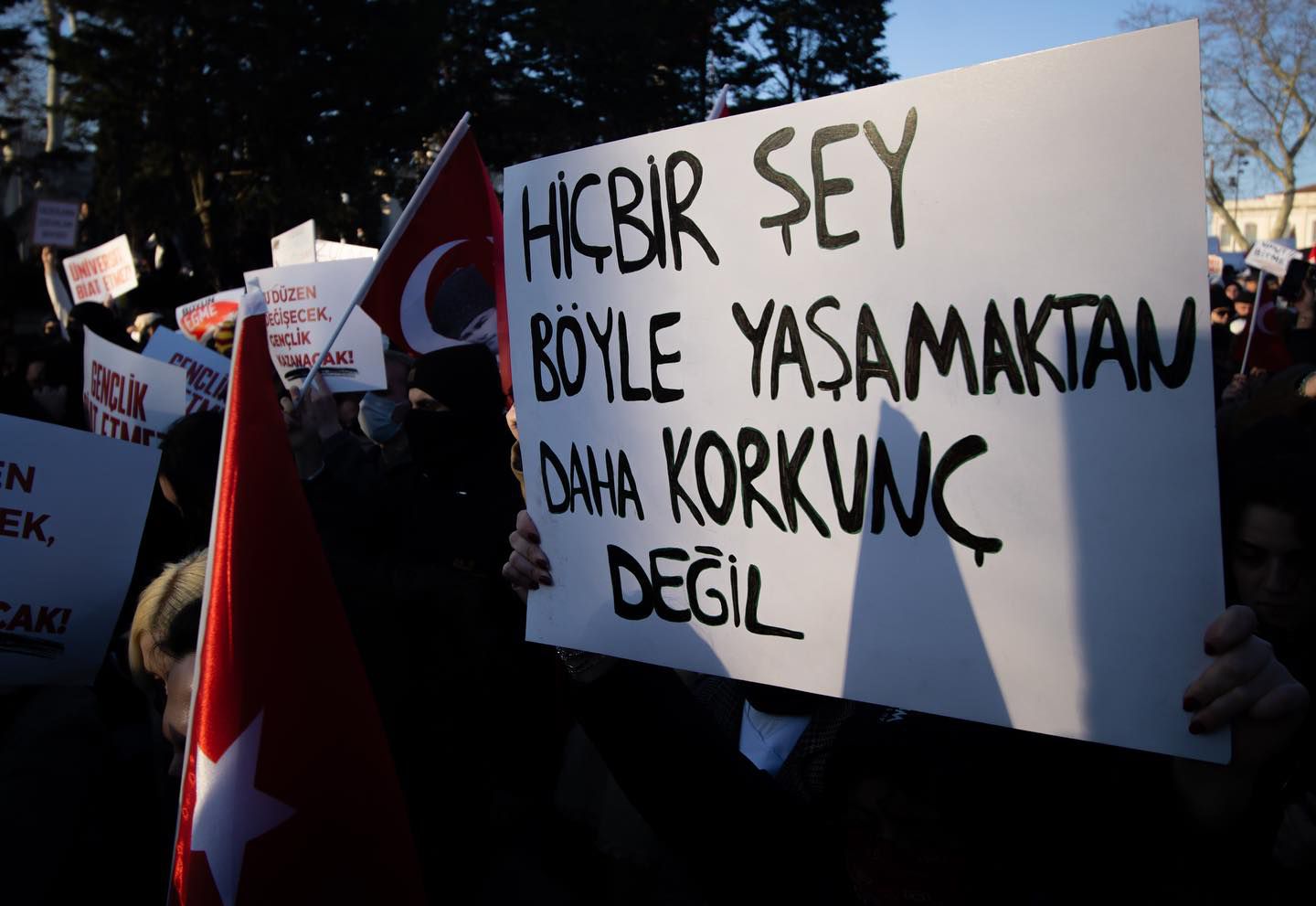
Strategy of the Turkish State
Many long-established social opposition actors in Turkey made widespread calls for these protests, condemned the arrest of imamoğlu, supported the youth’s legitimate demands for justice, democracy and freedom, and stood up against police violence and bans. On the other hand, the Kurdish political movement (DEM Party), one of the strongest established actors of street protest, chose to limit its support to its high-level party leaders. Only party representatives made a symbolic visit to the centre of the protest, and released a statement declaring Imamoğlu’s detention as a coup d’état. The DEM Party’s support for such a large and widespread uprising, where ‘ordinary citizens’ were able to protest for the first time in years, could have been a game changer for the fate of the country and could have put Erdoğan in a harder position than ever before. From today’s perspective, it is not difficult to guess what was behind Erdoğan’s intention to start a peace process with the PKK in the past few weeks. However, why the DEM Party took such a stance remains a more complex question, the answer to which is left to be answered by history. Nevertheless, at this stage I think it is more important to talk about the results rather than the reasons, because the DEM Party’s distance has had two important consequences. The police on the street aswell as Erdoğan in the political Arena, managed to escape from a very important threat. The participation of the DEM parti and the kurdish youth in the protest could have make Erdoğan’s job very more difficult. Compared to the Gezi Park riots, the lack of experience, resilience, organizational skills and determination that the DEM Party and Kurdish youth could have brought in the protest was clearly noticeable.
I think that if Erdoğan and his police had one single wish for this time, they would use it to keep the Kurds away from these protests. The second of the results explains this better: The absence of the Kurds as a collective in this field gave more space to the nationalist and statist tendency, which was already quite strong among the protesters. Leaving aside the argument that this is both a cause and a consequence of the absence of the DEM Party, it should be noted that this crowd, which was uniformised in terms of ethnic identity, tended to be uniformised in other issues as well, with the result that those among the protesters who struggle with an intersectional approach, such as Kurds, feminists, LGBTI+s, socialists, anarchists, animal rights defenders, etc., became even more ‘marginalised’ in the protests and were understandably hesitant to be visible with these identities, for example, to hold up a rainbow flag, for their own safety. In most cities, LGBTI+ people did not feel safe to come to the protests collectively, nor an individual queer could figure out with whom they would feel safe at the protests. If Erdoğan and his police could make a second wish, they would definitely choose to wish that an intersectional struggle would not emerge from these protests. Because intersectionality, both in terms of the number and the quality it would bring, was Erdoğan’s worst nightmare. Because the future, the sustainability and the direction of this legitimate anger that emerged in the protests and whether it would ever threaten the state or not depended on its intersectional character. As explained at length above, Erdoğan had manage to achieve his current absolute authority through his precise policy of destroying the grounds of intersectionality. There was no doubt that the joining forces of all the oppressed in these protests would benefit all the oppressed and disadvantage their common enemy. However, I regret to say that Erdoğan and his police seem to be having good luck and their two most desirable wishes are being realised in the uprising that has been taking place since 19 March.
Happening now: widespread resistance against a very violent repression
As of today, 27 March, the protests still continue with the character I mentioned above. In the past week, queers, feminists, anarchists, socialists… have made significant progress in becoming more visible and giving the protests a revolutionary character. Simultaneously, the launching of a massive boycott campaign against many government related companies caused a great panic. On the same day, seeing high-ranking government officials giving pose in boycotted companies and advertising their products in support of these companies proved once again that we were officially at war: The Turkish state criminal organisation and its capital had declared a war against everyone they perceived as a threat to their interests. Apparently, their priority was not even to arrest people in this war, but to collect data on who was on the opposing front. It was not for nothing that the police, who surrounded the demonstration at the universities yesterday, said that they would release the protesters in exchange for removing their masks. Meanwhile, several guides on personal data security posted on social media by those who have been on the streets for years have been life-saving. While Erdogan’s professors at some universities have been sharing attendance sheets with the police to mark students who are not attending classes these days, many professors who supported the call for an academic boycott have already been dismissed from their posts. Although I have said that arrests are not the first priority, the prisons around Istanbul have reached their capacity and new detainees are expected to be sent to prisons in nearby cities. It is surprising only for those who do not know the real function of the law that dozens of people have now been arrested for the minor offence of ‘violation of the law on meetings and demonstrations’, which was not taken seriously in previous years because most of the time people did not even receive a fine as a result of the trial.

The necessity to take the side of the stone thrown at the police, not the person who throws it
We are at a point where it is once again clear that the approach taught to us by classical jurstice system and politicians, that we should unconditionally take the side of one of those in conflict, or that the status of victim and perpetrator should be two different people/identities that are strictly separated from each other, is leading us into a trap. It is so striking to watch how so many of 16-24 year old protesters, who are ready to threaten and expel Kurds or LGBTI+s who would come to the protests with their open identities and visibility, based on the mandatory education they have received from Erdoğan’s school, media and family, become perpetrators and victims at the same time. Since 19 March, as victims of the state in this uprising, if more than 2000 people have been detained, thousands of people have been injured – some of them fatally -, dozens of people have already been put in prison, unknown numbers of people have been kicked out of their families’ homes, universities, jobs, and have been labelled as terrorists by the intelligence services, this is partly because of the power they have lost as a result of their role as perpetrators. I see that this trap has caught on among some ‘yesterday’s terrorists’ and that a significant part of them, in particular in the Kurdish political party, which have spent their lives fighting against the state are at best indifferent to the violence of the state and the justified demands of the protesters. I also interpret the lack of knowledge and the silence of the antifascist movement in Switzerland and Europe in this light. Therefore, I feel a responsibility to explain what is happening in this uprising to other rebels around the world, because explaining that the current uprising, despite its complexity, deserves international support and solidarity can only be possible with an anti-authoritarian perspective that does not fall into the trap of taking sides, which is about to disappear in Turkey. It is possible to sup
port this uprising without victim blaming of someone for being tortured by the police and without excusing the same person as a perpetrator for attempting to suppress the Kurdish banner.
Where to place such a controversial uprising?
This uprising in Turkey still deserves to be supported, because the protesters are not only nationalist/apolitical generation z. Many queer, Kurdish, anarchist, socialist, anti-speciesist, feminist, people who believe in intersectional struggle… are raising their voices against injustice and resisting the Turkish state in the streets today as they have been doing for years. Despite their fear of the majority of protesters, they prefer to be on the streets and they are bearing a heavier share from state violence. The complexity of this uprising means that they need support more than ever. Backing this uprising is essential for them to come out of it with some regained ground or at least without being further pushed back. This uprising in Turkey still deserves to be supported because, one by one, the protesters, even if they harbour counter-revolutionary ideas, are legitimate in what they are revolting against, and this is what determines the legitimacy of an uprising: The organs and policies of the Turkish state, symbolised by Erdoğan. It does not matter that the majority of protesters want the dictator Erdoğan to fall and be replaced by the nationalist Imamoğlu. Today, we can stand shoulder to shoulder in the fight to bring down Erdoğan and tomorrow, we can part ways when the demand is to replace him with İmamoğlu. Once we have destroyed the biggest existing power, then we will fight to destroy the second biggest power, and then the third, until there is no power above us. This anarchist point of view calls for the support of any threat to Erdoğan, his state, his police, his judiciary. Criticism of these protests shouldn’t serve to isolate the uprising, but rather to inform the debates that will follow if it succeeds.
This uprising in Turkey still deserves to be supported because a dictator is using all the power and resources of the Turkish state, which has become a ‘criminal organisation’, to massacre people who do not have these power and resources, regardless of who they are. Not only protesters, but also their lawyers, journalists documenting torture, doctors treating the wounded at the protests, those who speak out about it, those who open their doors to people affected by the tear gas, anyone who is not in absolute obedience is now being punished. In the Turkey of 2025, where the state controls all private and public aspects of life and all our potential support is dismantled, Erdoğan surviving this uprising would mean leaving everyone who has ever questioned his authority locked in a burning building. This might be the first, only, and last chance we’ve had in years to act against Erdoğan’s power. That’s why any support for this uprising or any blow struck against its target, the Turkish state carries vital significance. This uprising in Turkey still deserves to be supported because for those who do not hold power and the majority, women, Kurds, Alevis, queers, the poor, youth, immigrants, ‘yesterday’s terrorists’, the first step toward breathing, being heard, and gaining freedom is the collapse of the current order. This uprising in Turkey still deserves to be supported, because this may be the last chance for us ‘yesterday’s terrorists’, who have already been imprisoned and forced into exile for rebelling for years, to see the daylight again in the country we were born.
Projet-Evasions.org




